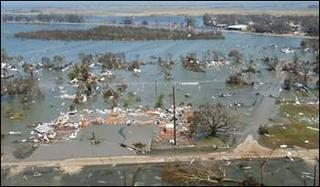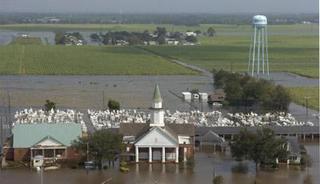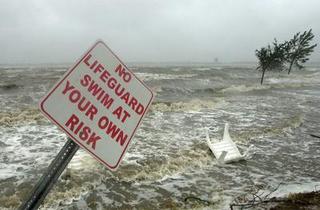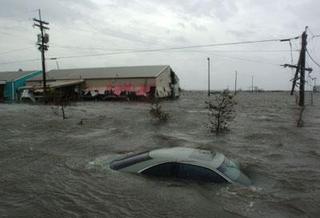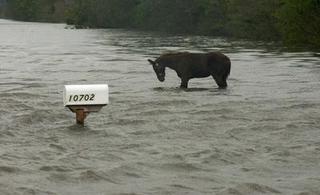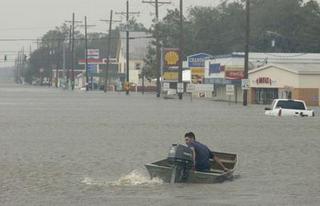Addressing a caller's suggestion that the "lost revenue from the people who have been aborted in the last 30 years" would be enough to preserve Social Security's solvency, radio host and former Reagan administration Secretary of Education Bill Bennett dismissed such "far-reaching, extensive extrapolations" by declaring that if "you wanted to reduce crime... if that were your sole purpose, you could abort every black baby in this country, and your crime rate would go down." Bennett conceded that aborting all African-American babies "would be an impossible, ridiculous, and morally reprehensible thing to do," then added again, "but the crime rate would go down."
See here for Media Matters's continuing coverage of this overhyped, overplayed story. See here for Joe Gandelman's round-up at The Moderate Voice.
Needless to say, Bennett's remarks have prompted an outpouring of outrage -- and, to a certain extent, justifiably so. If nothing else, his comments were profoundly insensitive. But the question is, were they false?
At National Review Online, Andrew McCarthy argues that "Bennett made a minor point that was statistically and logically unassailable". Furthermore, he argues that, taken in context, Bennett "emphatically qualified his remarks from the standpoint of morality" and "ended with the entirely valid conclusion that sweeping generalizations are unhelpful in making major policy decisions". The problem with the outrage directed at Bennett is that those who are outraged are taking his comments out of context, focusing solely on the de-contextualized part that Media Matters quotes (see above). Clearly, Bennett was not arguing that all black babies should be aborted. Rather, he was making the point that such generalizations are largely pointless from a philosophical (and policy-making) perspective. Furthermore, what Bennett said was, from a statistical perspective, right. McCarthy again:
Statistics have long been kept on crime, breaking it down in various ways, including by race and ethnicity. Some identifiable groups, considered as a group, commit crime at a rate that is higher than the national rate.
Blacks are such a group. That is simply a fact. Indeed, our public discourse on it, even among prominent African Americans, has not been to dispute the numbers but to argue over the causes of the high rate: Is it poverty? Breakdown of the family? Undue police attention? Other factors — or some combination of all the factors? We argue about all these things, but the argument always proceeds from the incontestable fact that the rate is high.
The rate being high, it is an unavoidable mathematical reality that if the number of blacks, or of any group whose rate outstripped the national rate, were reduced or eliminated from the national computation, the national rate would go down.
Again, there may be any number of reasons for the relatively high crime rate among blacks, and some of those reasons may be serious social problems that need to be addressed. But, again, what Bennett said wasn't objectively wrong (although, I admit, it probably depends on your definition of "crime"). If anything, what he said was just plain stupid. I mean, I could say, for example, that the rate of gambling addiction would be lower if only Bennett himself had been aborted. Isn't that true? Of course it is. Or that the rate of defrauding shareholders of Tyco would be lower if only all white men had been aborted. Also true.
Majikthise has more such examples here. Pandagon does, too, along with a vitriolic critique of McCarthy, here: "In general, it's never a very good idea politically to theorize about the wholesale abortion of an entire race of people." Well, exactly.
Other bloggers posting on this:
- Donklephant (and here)
- The Carpetbagger Report
- Andrew Sullivan
- Outside the Beltway
- The Left Coaster
- Wonkette
- Oliver Willis
- Brad DeLong
- The Huffington Post
- Echidne of the Snakes
- Skippy the Bush Kangaroo
- The Debate Link (a fellow TMV co-blogger)
Oy. I could go on and on, but these are the best. Echidne has another good counter-example: "Quite a few people are discussing Bennett's statement out of context but even within context it's fairly bad. He picks African-Americans as the group to use in his stupid example, and that is racist. Because if he had really wanted to make the point by picking a group with very high crime rates he should have suggested aborting all male fetuses. And don't you now go saying that I have advocated that, because I didn't. I just pointed out how one can see that Bennett uses an 'out-group' for his example, and by doing that he others the members of that group."
And, again, that's pretty much my view. Bennett's point was, strictly speaking, accurate, but as a reductio ad absurdum argument it was astonishingly insensitive and politically irresponsible. I wouldn't go so far as to call it racist, but it's close, if only because Bennett could have picked any group and picked one that has been the target of institutionalized racism (and, yes, genocide).
Gandelman sums it up well (see link above):
"Bottom line: no matter what his intentions, how his friends (or even enemies) defend him, by the relentless rules of the game in 21st century America as a political commodity Bill Bennett will be damaged goods except to those who already agree with him. On the other hand, if his foes press taking his radio show off the air, Bennett will garner lots of support from even many who criticize him. If he's given the boot for a big mouth, than many talk show hosts on the right and left ought to bend down, too. But Bennett has heightened the controversy. It was bad enough that he made the original comments, that he tried to quickly qualify them. It was bad enough when his foes leaped on it to make it a political issue. And it was bad enough when he decided to go on the offensive against the Democrats. Bill Bennett had a mouth dysfunction and, when his critics pushed the political button, he pushed the polarization button.
Precisely.
But let me be clear about this: I'm no fan of Bill Bennett. In fact, I dislike him immensely. Not as much as DeLong -- who calls him "a loathsome fungus on the tree of American politics, a man who has worked unceasingly to make America a worse place" -- but close. Bennett claims to be something of a philosopher, even a Socratic philosopher, but this incident proves once more that, whatever his "learning," he's a stupid, stupid man who often says stupid, stupid things.
Ah, yet another embarrassment for the right. Add William Bennett, America's self-appointed morality cop, to the list.
(See my previous posts on the end of conservatism and the moral absolutism of the right, both of which are applicable here.)





